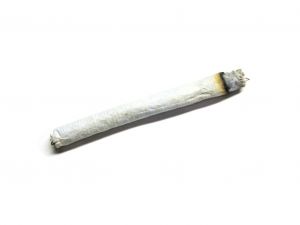NO FEES unless we recover money for you. |
Call 205-391-0618
Office Locations: Tuscaloosa Birmingham
Blog
Workers’ Compensation Claims in Alabama Complicated by Drug Use
Mar 11, 2014 - Workers' Compensation/Work Injury by Cross & Smith
A pair of decisions out of the Arkansas Supreme Court recently illustrates how companies will go to great lengths to fight workers’ compensation claims.
This is as true in Alabama as it is in Arkansas, and despite the differing jurisdictions, our Birmingham workers’ compensation lawyers know that the issues presented in these cases are highly relevant here as well.
The cases involve two separate employees and two separate appeals, but both were involved in the same accident at the same company. The first case is Prock v. Bull Shoals Boat Landing and the second is Edmisten v. Bull Shoals Landing.
Both workers were employed at a houseboat rental company. While there are some details that the employer refutes, this much we know: In November 2/car-accidents/alabama-traffic-accidents-likely-to-increase-with-economic-recovery/, two workers were seriously injured while they were holding the lid of a 55-gallon drum. As it was opened with an acetylene torch, the drum exploded. Both workers suffered severe injuries, and had to be transported to a nearby hospital.
While they were there, they were drug-tested. Both tested positive for marijuana. As in Alabama, marijuana is illegal in Arkansas for all purposes.
When the pair filed workers’ compensation claims, the state commission denied their claims on the basis that both men failed to fully refute the “statutory presumption” that the accident was “substantially occasioned” by drug use. In other words, the fact that illegal drugs were in his system created an automatic presumption that intoxication was the cause of the work accident, and the burden of proof to show that it wasn’t rested on the workers, who purportedly failed to meet this benchmark. The appellate court confirmed.
The state supreme court, however, reversed.
The original finding overlooks a key point with regard to marijuana intoxication specifically. That is, the presence of the drug alone does not prove intoxication. Unlike alcohol, which is processed swiftly through a person’s system, marijuana can take days or even weeks after consumption to be eliminated from the user’s system. So the fact that it was found to be present does not prove intoxication, merely consumption. This is an important point when determining the degree to which it played a role in the work accident.
Both men testified that while they smoked the drug recreationally sometimes in the evenings and on weekends, they did not do so prior to work and they did not do so together. They and their co-workers testified that there was no indication that either were intoxicated just prior to the accident. The only indication were those positive drug test results.
The company did reportedly have air chisels available for use in opening the drums, which was the company’s preferred way of opening the drums. However, the two testified that they had done it with a torch numerous times before and were never corrected by supervisors or told that air chisels were available for this purpose. This was something the two did 10 to 15 times daily without incident.
Similar to Alabama law, work-related injuries in Arkansas aren’t compensable when they are substantially occasioned by the use of drugs or alcohol.
Companies will attempt to use this clause to their advantage. This is not to say that we champion illegal drug use of any kind. But we also know that employers will work to test the limits – and it’s not just those who recreationally consume illegal drugs who should be concerned.
For example, those who are prescribed prescription pain medication might be considered liable for their own injuries if the employer can prove that the drugs had an intoxicating influence on the individual. Even someone who takes their medication according to the prescribed schedule may still find themselves in for a fight when attempting to obtain workers’ compensation benefits.
This of course is inherently unfair, but it’s what you can expect from firms attempting to minimize their liability in any way possible.
We encourage workers to never try to go it alone.
Additional Resources:
Prock v. Bull Shoals Boat Landing, Feb. 27, 2014, Arkansas Supreme Court
Edmisten v. Bull Shoals Landing, Feb. 27, 2014, Arkansas Supreme Court
Categories
- Amputation
- ATV/SUV Rollover Accidents
- Bessemer
- Birmingham
- Bus Accidents
- Car Accidents
- Construction Accidents
- Dangerous Products/Liability
- Defective Medical Devices
- Drunk Driving Accidents
- Firm News
- Medical Malpractice
- Motorcycle Accidents
- Nursing Home Neglect
- Personal Injury
- Pharmaceutical Litigation/Dangerous Drugs
- Premises Liability
- Train Accidents
- Truck Accidents
- Tuscaloosa
- Uncategorized
- Workers' Compensation/Work Injury
- Wrongful Death
Archives
Get a Free Consultation No Recovery. No Fee.
Hear What Our Clients Have To Say
"I have been friends with Dell Cross since we were roommates at UA Law and have had the pleasure of conferring with Cross & Smith, LLC in a professional capacity for many years. As a law office which specializes in domestic relations and family law matters, it is imperative that my office maintain a consistent client referral relationship with a law firm which can effectively address personal injury matters brought to us by our clients."
Posted By: Mark Sterling Gober

